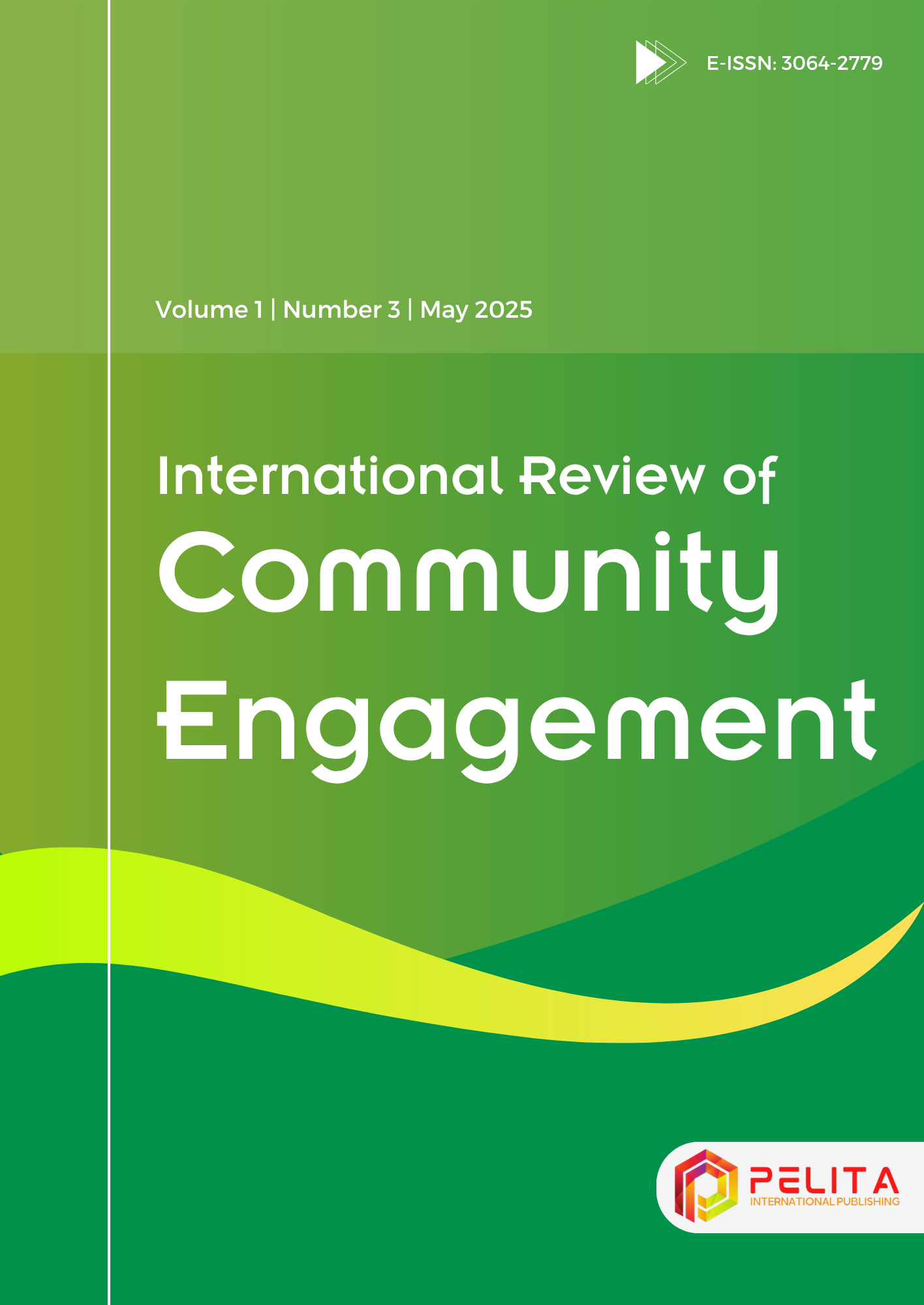
An investigation into artificial intelligence literacy among biology education students as a foundation for developing an AI-integrated curriculum in learning planning courses
DOI:
10.62941/irce.v1i3.136Downloads
Abstract
This study assesses AI literacy among students of Biology Education as a preliminary step to formulate an AI-integrated curriculum. 176 students from a private university in Nias Islands, Indonesia, participated in essay examinations and self-assessment questionnaires. The results indicate that the average AI literacy score was 56%, which suggests inadequate comprehension, recognition of social implications, application of AI technologies, and ethical behavior. Attitudinal measures were lower at 49.68%, indicating students do not engage with AI critically, ethically, or reflectively. Although students displayed moderate abilities regarding AI application, lacking were critical evaluation, interpretation of social ramifications, and ethical application. These results point to the necessity to improve information technology ethical, critical, and social literacy within biology education curricula. An AI-integrated capstone reflection framework for responsible digital citizenship identity formation is proposed to respond to Society 5.0 and to alleviate digital inequities in underdeveloped regions. The study suggests transforming courses like Planning Lessons into AI-powered reflective learning engagements to cultivate students’ digital literacy and global citizenship skills in a technology-dominated educational environment.
Keywords:
Artificial intelligence literacy biology education curriculum development ethical awareness affirmation regionReferences
Alubthane, F. O. (2024). Role of AI-Powered Online Learning in Improving University Students’ Knowledge-Based Economic Skills. Pakistan Journal of Life and Social Sciences (PJLSS), 22(2). https://doi.org/10.57239/PJLSS-2024-22.2.00157
Anyim, W. O. (2021). Relevance of Electronic Resources and Improvement of Access for Effective Distance Learning and Continuing Education Programme. International Journal of Asian Education, 2(1), 52–63. https://doi.org/10.46966/ijae.v2i1.83
Calp, M. H., & Bütüner, R. (2022). Society 5.0: Effective technology for a smart society. In Artificial Intelligence and Industry 4.0 (pp. 175–194). Elsevier. https://doi.org/10.1016/B978-0-323-88468-6.00006-1
Criollo-C, S., Guerrero-Arias, A., Jaramillo-Alcázar, Á., & Luján-Mora, S. (2021). Mobile Learning Technologies for Education: Benefits and Pending Issues. Applied Sciences, 11(9), 4111. https://doi.org/10.3390/app11094111
Dilsizian, S. E., & Siegel, E. L. (2014). Artificial Intelligence in Medicine and Cardiac Imaging: Harnessing Big Data and Advanced Computing to Provide Personalized Medical Diagnosis and Treatment. Current Cardiology Reports, 16(1), 441. https://doi.org/10.1007/s11886-013-0441-8
Fukuyama, M. (2020). Society 5.0: Aiming for a New Human-centered Society. Japan Spotlight, 27(5), 47–50.
Holmes, W., Bialik, M., & Fadel, C. (2019). Artificial Intelligence in Education: Promises and Implications for Teaching and Learning. Center for Curriculum Redesign.
Holmes, W., Bialik, M., & Fadel, C. (2022). Artificial intelligence in education: Promises and implications for teaching and learning (2nd ed.). Center for Curriculum Redesign.
Holmes, W., Porayska-Pomsta, K., Holstein, K., Sutherland, E., Baker, T., Shum, S. B., Santos, O. C., Rodrigo, M. T., Cukurova, M., Bittencourt, I. I., & Koedinger, K. R. (2022). Ethics of AI in Education: Towards a Community-Wide Framework. International Journal of Artificial Intelligence in Education, 32(3), 504–526. https://doi.org/10.1007/s40593-021-00239-1
Hwang, H. S., Zhu, L. C., & Cui, Q. (2023). Development and Validation of a Digital Literacy Scale in the Artificial Intelligence Era for College Students. KSII Transactions on Internet and Information Systems, 17(8). https://doi.org/10.3837/tiis.2023.08.016
Khan, T. A., Alam, M., Rizvi, S. A., Shahid, Z., & Mazliham, M. S. (2024). Introducing AI Applications in Engineering Education (PBL): An Implementation of Power Generation at Minimum Wind Velocity and Turbine Faults Classification Using AI. Computer Applications in Engineering Education, 32(1). https://doi.org/10.1002/cae.22691
Labov, J. B., Reid, A. H., & Yamamoto, K. R. (2010). Integrated Biology and Undergraduate Science Education: A New Biology Education for the Twenty-First Century? CBE—Life Sciences Education, 9(1), 10–16. https://doi.org/10.1187/cbe.09-12-0092
Lin, X.-F., Wang, Z., Zhou, W., Luo, G., Hwang, G.-J., Zhou, Y., Wang, J., Hu, Q., Li, W., & Liang, Z.-M. (2023). Technological support to foster students’ artificial intelligence ethics: An augmented reality-based contextualized dilemma discussion approach. Computers & Education, 201, 104813. https://doi.org/10.1016/j.compedu.2023.104813
Long, D., & Magerko, B. (2020). What is AI Literacy? Competencies and Design Considerations. Proceedings of the 2020 CHI Conference on Human Factors in Computing Systems, 1–16. https://doi.org/10.1145/3313831.3376727
Mourtzis, D., Angelopoulos, J., & Panopoulos, N. (2022). A Literature Review of the Challenges and Opportunities of the Transition from Industry 4.0 to Society 5.0. Energies, 15(17), 6276. https://doi.org/10.3390/en15176276
Ng, D. T. K., Leung, J. K. L., Chu, K. W. S., & Qiao, M. S. (2021). AI Literacy: Definition, Teaching, Evaluation and Ethical Issues. Proceedings of the Association for Information Science and Technology, 58(1), 504–509. https://doi.org/10.1002/pra2.487
Ng, D. T. K., Luo, W., Chan, H. M. Y., & Chu, S. K. W. (2022). Using Digital Story Writing as A Pedagogy to Develop AI Literacy Among Primary Students. Computers and Education: Artificial Intelligence, 3, 100054. https://doi.org/10.1016/j.caeai.2022.100054
Niyozov, N., Saburov, S., Ganiyev, S., & Olimov, S. (2023). AI-powered learning: revolutionizing technical higher education institutions through advanced power supply fundamentals. E3S Web of Conferences, 461, 01092. https://doi.org/10.1051/e3sconf/202346101092
Shah, W. S., Elkhwesky, Z., Jasim, K. M., Elkhwesky, E. F. Y., & Elkhwesky, F. F. Y. (2023). Artificial Intelligence in Healthcare Services: Past, Present and Future Research Directions. Review of Managerial Science. https://doi.org/10.1007/s11846-023-00699-w
Tavares, M. C., Azevedo, G., & Marques, R. P. (2022). The Challenges and Opportunities of Era 5.0 for a More Humanistic and Sustainable Society—A Literature Review. Societies, 12(6), 149. https://doi.org/10.3390/soc12060149
Yao, N., & Wang, Q. (2024). Factors Influencing Pre-service Special Education Teachers’ Intention Toward AI in Education: Digital Literacy, Teacher Self-efficacy, Perceived Ease of Use, and Perceived Usefulness. Heliyon, 10(14), e34894. https://doi.org/10.1016/j.heliyon.2024.e34894
Zawacki-Richter, O., Marín, V. I., Bond, M., & Gouverneur, F. (2019). Systematic review of research on artificial intelligence applications in higher education – where are the educators? International Journal of Educational Technology in Higher Education, 16(1), 39. https://doi.org/10.1186/s41239-019-0171-0
Zebua, N. (2024). Evaluating the Impact of GenAI in High School Education: A Critical Review. Polygon: Jurnal Ilmu Komputer dan Ilmu Pengetahuan Alam, 2(6), 79-86. https://doi.org/10.62383/polygon.v2i6.296
Zebua, N., Ibrohim, I., & Sulisetijono, S. (2025). Exploring the Level of AI (Artificial Intelligence) Digital Literacy and Creative Thinking Skills in High School Students. Bioscientist: Jurnal Ilmiah Biologi, 13(1), 510-520. https://doi.org/10.33394/bioscientist.v13i1.14782
License
Copyright (c) 2025 Nofamataro Zebua, Mr. Yan, Ms. Ester

This work is licensed under a Creative Commons Attribution-ShareAlike 4.0 International License.









